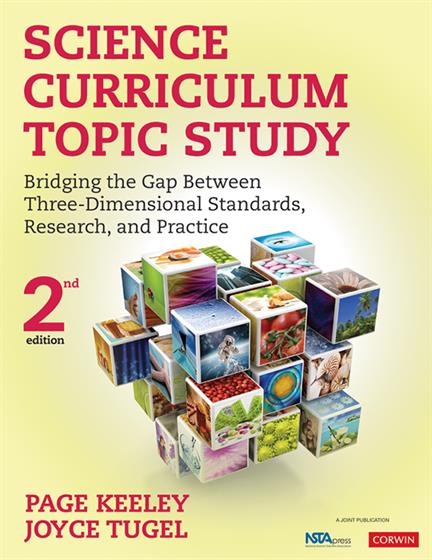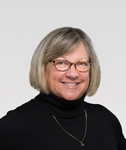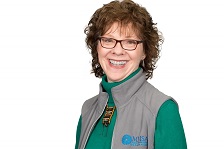PAGE KEELEY has been a leader in science education for over 20 years. She "retired" from the Maine Mathematics and Science Alliance (MMSA) in 2012 where she had been the Senior Science Program Director since 1996. Today she works as an independent consultant, speaker, and author providing professional development to school districts and organizations in the areas of formative assessment and teaching for conceptual understanding.
Page has been the principal investigator and project director on 3 National Science Foundation-funded projects including the Northern New England Co-Mentoring Network (NNECN), PRISMS- Phenomena and Representations for Instruction of Science in Middle School, and Curriculum Topic Study- A Systematic Approach to Utilizing National Standards and Cognitive Research. In addition, she developed and directed state MSP projects including Science Content, Conceptual Change, and Collaboration (SC4) and TIES K-12- Teachers Integrating Engineering into Science K-12 and two National Semi-Conductor Foundation grants, Linking Science, Inquiry, and Language Literacy (L-SILL) and Linking Science, Engineering, and Language Literacy (L-SELL). She developed and directed the Maine Governor’s Academy for Science and Mathematics Education Leadership, which completed its fourth cohort group of Maine teacher STEM leaders, and is a replication of the National Academy for Science and Mathematics Education Leadership, of which she is a Fellow.
Page is a prolific author of over twenty national best-selling and award-winning books, including twelve books in the Uncovering Student Ideas in Science series, four books in the first edition Curriculum Topic Study series, and four books in the Science and Mathematics Formative Assessment- Practical Strategies for Linking Assessment, Instruction, and Learning series. Several of her books have received prestigious awards in educational publishing. She has authored numerous journal articles and contributed to several book chapters. She is a frequent invited speaker at regional, national, and international conferences on the topic of formative assessment in science, understanding students’ (and teachers’) thinking, and teaching for conceptual understanding.
Prior to leaving the classroom to work at the Maine Mathematics and Science Alliance in 1996, Page taught middle and high school science for 15 years. At that time she was an active teacher leader at the state and national level, serving two terms as President of the Maine Science Teachers Association and NSTA District II Director 1995-1998 and NSTA Executive Board member (prior to the Board and Council restructuring in 1997). She received the Presidential Award for Excellence in Secondary Science Teaching in 1992 and the Milken National Distinguished Educator Award in 1993.
Since leaving the classroom in 1996, her work in leadership and professional development has been nationally recognized. In 2008 she was elected the 63rd President of the National Science Teachers Association (NSTA), the world's largest organization of K-12, university, and informal science educators. In 2009 she received the National Staff Development Council’s (now Learning Forward) Susan Loucks-Horsley Award for Leadership in Science and Mathematics Professional Development. In 2013 she received the Outstanding Leadership in Science Education award from the National Science Education Leadership Association (NSELA) and in 2018, The Distinguished Service to Science Education Award from NSTA. She has served as an adjunct instructor at the University of Maine, was a Cohort 1 Fellow in the National Academy for Science and Mathematics Education Leadership, was a science literacy leader for the AAAS/Project 2061 Professional Development Program, and served on several national advisory boards. She has a strong interest in global science education and has led science/STEM education delegations to South Africa (2009), China (2010), India (2012), Cuba (2014), Iceland (2017), Panama (2018), and Costa Rica (2019).
Prior to entering the teaching profession, Page was a research assistant for immunogeneticist, Dr. Leonard Shultz, at the Jackson Laboratory of Mammalian Genetics in Bar Harbor, Maine. She received her B.S. in Life Sciences/pre-veterinary studies from the University of New Hampshire and her Masters degree in Science Education from the University of Maine. In her spare time she enjoys travel, reading, photography, fiber art, and dabbles in modernist cooking and culinary art. A Maine resident for almost 40 years, Page and her husband currently reside in Fort Myers, FL and Wickford, RI. Page can be contacted at pagekeeley@gmail.com or through her web site at www.uncoveringstudentideas.org





